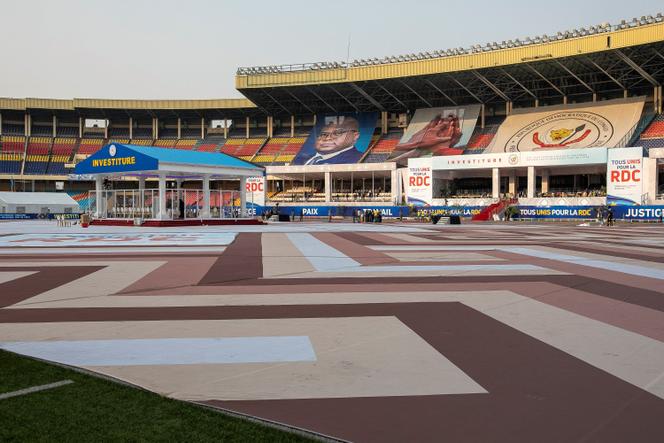


The president of the Democratic Republic of the Congo, Felix Tshisekedi, was sworn in Saturday, January 20, following a disputed December election, promising to unite the country during his second five-year term and to protect lives in the conflict-hit eastern region.
"I am taking back the baton of command that you entrusted to me. We want a more united, stronger and prosperous Congo," Tshikedi, 60, said during the inauguration ceremony attended by several heads of state.
Tshisekedi won re-election with more than 70% of the vote, according to the election commission. However, opposition candidates and their supporters questioned the validity of the election, which was mired in logistical problems. Many polling stations were late in opening or didn’t open at all while some lacked materials. Voter turnout was 40%, the election commission said.
With tensions simmering in the vast nation's volatile eastern provinces, the 60-year-old president known as "Fatshi" picked Kinshasa's 80,000-capacity Martyrs sports stadium for the ceremony. The stands were packed well before midday with singing and dancing in full flow awaiting the arrival of what the authorities said would be some 20 invited heads of African states.
Tshisekedi's first swearing-in, in January 2019, after controversially defeating Joseph Kabila, took place in the gardens of the Palace of Nations, a solemn venue that has traditionally staged important official events. It was the DRC's first democratic transfer of power since the country's independence from Belgium in 1960.
Tshisekedi became president promising to improve living conditions in the DRC – which boasts mineral riches but has a largely impoverished population of 100 million – and put an end to 25 years of bloodshed in the east. He has not kept those promises but this time around he campaigned strongly on his first-term achievements such as free primary medication, asking for another mandate to "consolidate" the progress.
More than 40 million people were registered to vote on December 20 for a president, as well as national and regional lawmakers and municipal councillors. Polling was officially extended by a day to account for multiple logistical snarls and continued for days afterwards in remote areas.
In the end, Tshisekedi officially triumphed with 73.47% of the vote. Moïse Katumbi, a former governor of the central region of Katanga, came a distant second with 18.08%. Martin Fayulu, who says he was also robbed at the last presidential vote, garnered 5%. Nobel peace prize winner Denis Mukwege, who won the Nobel Peace Prize winner for his work with rape victims, scored 0.22%.
These candidates called for the election results to be cancelled. A protest planned for December 27 was banned and snuffed out by the police. The archbishop of Kinshasa denounced the elections as a "gigantic, organised mess." The electoral commission CENI has recognised cases of fraud, vandalism and intimidation, as well as the use of illegal voting machines.
Katumbi and Fayulu appealed to supporters to "show their discontent" on Saturday. They urged people "to stand up and say 'no'", from wherever they happen to be.
The security challenge remains monumental for Tshisekedi. There was a lull in fighting in the east during the elections but violence has since resumed between the army and M23 rebels, backed by neighbouring Rwanda.
